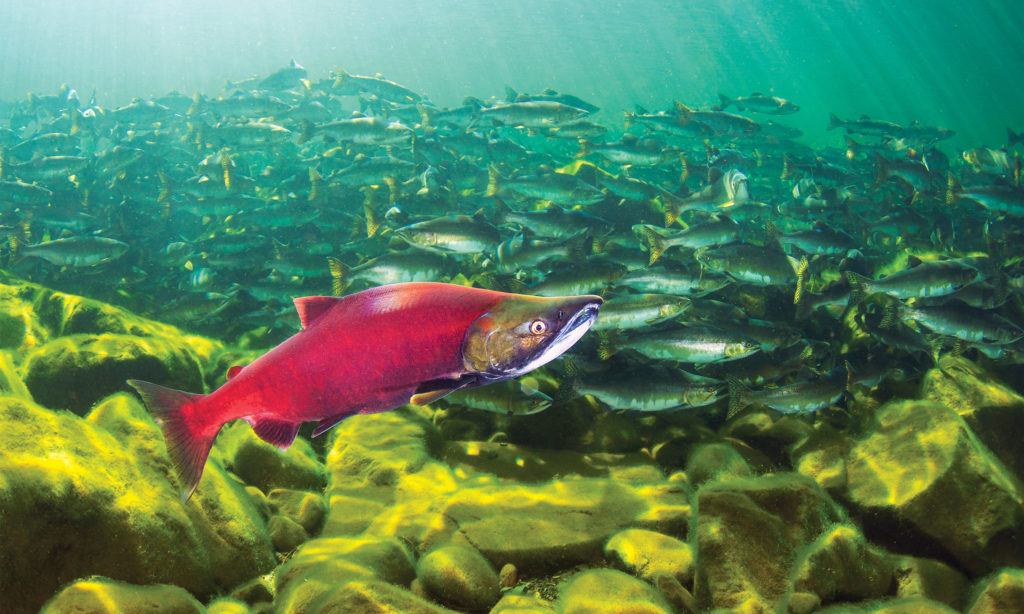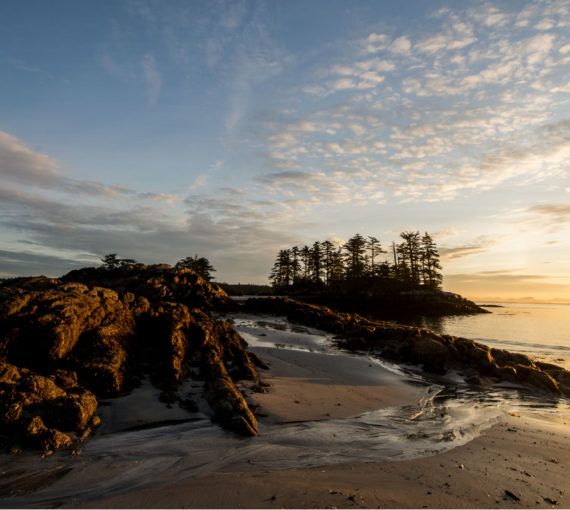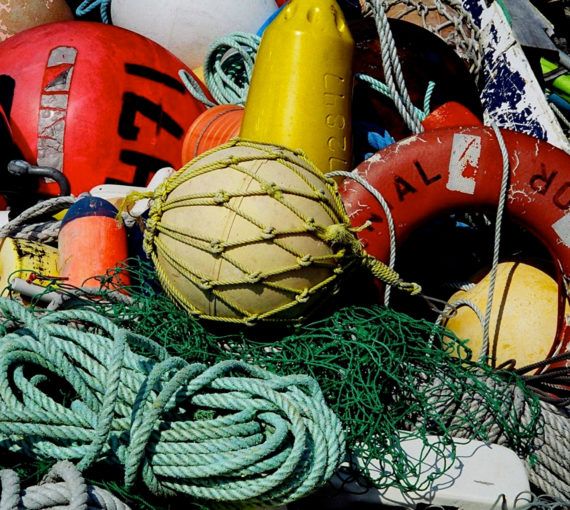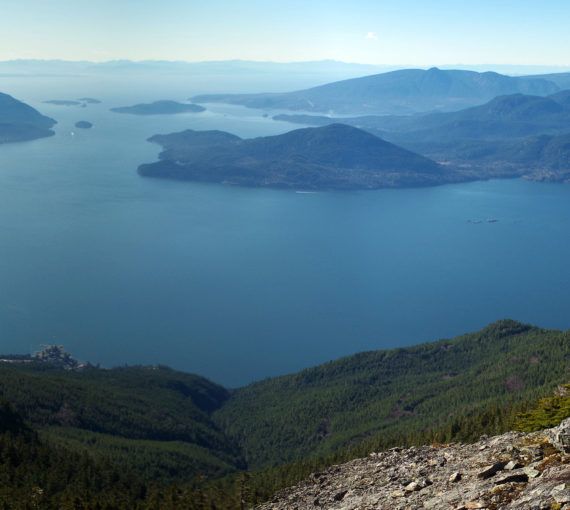
(Photo: April Bencze)
Healthy oceans are an invaluable source of life and wonder. Many people look over the ocean and only see a great expanse of water and waves. They don’t see the highly productive web of life below the surface — the enormous whales, millions of salmon, colourful anemones spreading their tentacles, ancient glass sponge reefs harbouring a multitude of marine life and warm hydrothermal vents creating an oasis for many rare species. This abundance and diversity is a spectacular gift to the world.
But oceans are in trouble. Overfishing, pollution and carbon emissions that warm and acidify oceans are driving many marine species toward extinction or steep declines in abundance.
The good news is that Canada has recently made progress on marine conservation. In 2015, the federal government committed to protect at least 10 per cent of Canada’s ocean environments by 2020. Now, 8.27 per cent of our oceans are designated as marine protected areas. In most, oil and gas development, dumping, mining and bottom trawling are prohibited, while other types of fishing, commercial activity and recreation are allowed, depending on the conservation objectives. As we near the 10 per cent target, the scientific community is pushing to protect at least 30 per cent of oceans globally by 2030.
It is encouraging to see government improving legislation and regulations to better conserve marine life. The Oceans Act reform bill C-55 and the Fisheries Act reform bill C-68 are two good examples. These bills have provisions to strengthen and speed up protection measures, and mandate recovery of fish stocks that fall below a healthy level of abundance.
On Canada’s West Coast, communities and government are pioneering regulations to restore salmon stocks, reduce the environmental effects of aquaculture, better protect southern resident orcas and reduce the negative impacts that many industrial activities have on marine life.
Progress in ocean protection is indeed happening, but are we doing enough fast enough? Damage to ocean habitat and the resulting impacts on fish stocks is a serious concern. Many coastal communities understand the economic hardships collapsing fish stocks create.
As Canada heads into a federal election, it is important for all parties to commit to strategies and budgets that will ensure our oceans are healthy, and marine life persists well into the future as a benefit to nature and our economies.
As Canada heads into a federal election, it is important for all parties to commit to strategies and budgets that will ensure our oceans are healthy, and marine life persists well into the future as a benefit to nature and our economies. Canada needs continued leadership on ocean conservation to be prepared for emerging threats to ocean health. In recognition of this need, World Oceans Day, June 8, is a perfect time to encourage all members of Parliament to commit to doing more for our oceans in the next term.
Support for ocean conservation is rising on many fronts, from citizens to Indigenous communities to corporations to governments. A recent Environics poll shows 92 per cent of Canadians support further ocean protection — more than the percentage of Canadian adults who consider the iconic sport of hockey important to our culture and society. This is understandable given the recent Intergovernmental Science-Policy Platform on Biodiversity and Ecosystem Services report, which found that an unprecedented species extinction is underway, with oceans taking a serious hit. Much more is needed to ensure we do not contribute to further endangering marine species or driving them to extinction.
In the wake of the 2019 federal election, Canadians will be looking for leaders willing to step forward as oceans champions, who will commit to maintaining meaningful protection standards and to recovering species that are declining. It’s up to us all to ensure that marine protection efforts move forward rather than fall back.
With the world’s longest coastline, Canada’s environment, economy and history are intricately linked to the oceans. With our dominion historically recognized “from sea to sea” it’s fitting that we were the first country to call for establishment of World Oceans Day. It’s incumbent on us now to elect leaders who will carry forward the vision of healthy oceans as a vital component of our way of life.
This op-ed was originally published in The Hill Times.
Our work
Always grounded in sound evidence, the David Suzuki Foundation empowers people to take action in their communities on the environmental challenges we collectively face.



